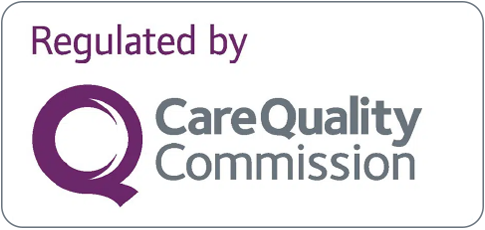Addressing the Care Gap for Testosterone Deficiency in the UK

In the world of healthcare, men’s health is too often overlooked, the consequences can be life-altering.
I attended the British Society for Sexual Medicine Conference in November last year. It left me feeling bewildered. At the end of an informative day, the audience, full of eager GP trainees as well as experienced medics of all kinds, were asked to ‘try’ to prescribe testosterone for their patients with deficiency- if they could…. So they have to try to sneak it past the NHS fund holders..? Or refer to consultants with huge clinic lists because they have not had adequate training?
Really???
As a practitioner focused on evidence- based care, I’ve become increasingly frustrated by the lack of provision for men in primary care settings in the UK—particularly when it comes to testosterone deficiency and its far-reaching effects on men’s health. This neglect not only impacts men’s quality of life but also leads to significant long-term health challenges. I added replacement of testosterone for men to my private clinic portfolio because I felt that I simply had to try to help.
Let’s take a closer look at why this issue demands urgent attention.
Testosterone Deficiency: A Hidden Epidemic
Testosterone deficiency often flies under the radar. It’s not uncommon for men to present to their GP with symptoms like fatigue, low libido, depression, and erectile dysfunction (ED), only to be dismissed or inadequately treated. This isn’t just about quality of life—it’s about safeguarding future health.
Erectile Dysfunction and Cardiovascular Disease
Erectile dysfunction, whether linked to testosterone deficiency or not, is a critical red flag. Studies consistently show that ED can be an early indicator of cardiovascular disease. If men with ED aren’t taken seriously, we’re missing a golden opportunity for early detection and intervention. By treating the symptom, we might prevent more severe outcomes like heart attacks or strokes.
Breaking Myths: Testosterone and Prostate Cancer
A pervasive myth in medicine is that testosterone therapy increases the risk of prostate cancer. This has been thoroughly debunked by robust scientific evidence. Men with low testosterone are actually at a higher risk for aggressive prostate cancer. When testosterone is managed appropriately, it has no adverse impact on prostate cancer risk.
For men with cardiovascular disease, testosterone therapy—especially in the form of gels—is safe when prescribed and monitored correctly. Neglecting to provide this treatment denies men the chance to improve their energy, muscle mass, mood, and overall well-being.
The Role of Tadalafil in Erectile Dysfunction and Fertility
Another proactive approach is the daily prescribing of tadalafil for erectile dysfunction. Beyond its well-known benefits for sexual health, tadalafil improves blood flow to the testes, which can enhance testosterone levels and positively impact fertility. This dual benefit makes it an underutilized yet highly effective tool in managing men’s health.
However, men who wish to father children must avoid testosterone replacement therapy, as it can suppress sperm production. In these cases, specialized care and alternative hormonal treatments are essential to preserve fertility.
Fragility Fractures: A Costly Oversight
A shocking one-quarter of fractures in men occur without trauma, often due to low testosterone levels. These “fragility fractures” are a stark reminder that testosterone plays a vital role in bone density. Detecting and managing testosterone deficiency early could significantly reduce healthcare costs and the burden of fractures, which greatly impact lifespan and quality of life.
The Path Forward: A Call for Better Men’s Health Care
It’s clear that testosterone deficiency is more than just a hormonal imbalance—it’s a gateway to numerous health issues, from cardiovascular disease to fractures. By ignoring it, we’re failing men at a fundamental level.
Men deserve better access to diagnostics, tailored treatments, and specialized care. Healthcare providers must prioritize this issue and educate themselves about the safety and efficacy of testosterone therapy, the importance of tadalafil, and the long-term risks of ignoring ED and low testosterone levels.
Conclusion
Men’s health isn’t a niche topic; it’s a cornerstone of public health. Addressing testosterone deficiency and its associated conditions is not only a matter of improving quality of life but also a vital strategy for preventing serious health outcomes. Let’s stop treating these issues as optional or unimportant.
If only the NHS was behind this and would support GPs to get the funding, training and confidence to manage men holistically.






